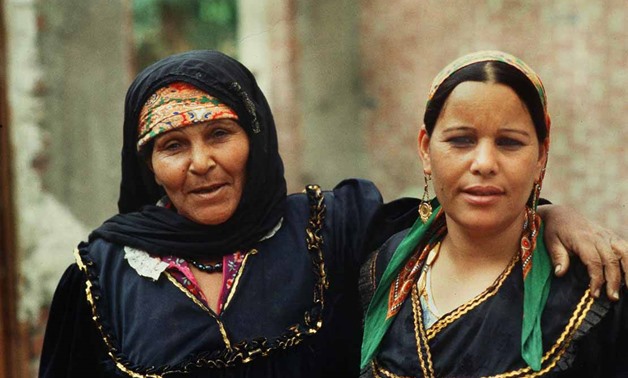
Women in Egypt Via Wikimedia Commons
CAIRO – 15 October 2017: On the International Day of Rural Women, we are celebrating the wonderful Upper Egyptian women. The International Day of Rural Women was established on October 15, 2008 by the General Assembly in its 62/136 resolution of December 18, 2007.
It recognizes “the critical role and contribution of rural women, including indigenous women, in enhancing agricultural and rural development, improving food security and eradicating rural poverty.”
Rural women in Egypt have always managed to keep up with the changes taking place in the country.
Egyptian rural women used to be uneducated, and only worked at home, or with their husbands in the surrounding farms. Now they are more aware of the importance of education, and how it is the key to having a better economic life, and a better status.
In 2011, a study showed that some 22.1 percent of young women aged 10-29 were not offered proper education. Hence, the UNDP is offering training courses to Upper Egyptian women, enabling them to master a craft on which they can depend on to improve their social and economic status.
Upper Egyptian women are burdened by strict traditions and very harsh social and economic conditions; in an attempt to alleviate these heavy burdens, the UNDP is empowering women through teaching them how to lead better independent lives.
For example, in 2014, the UNDP offered education and training to a young woman called Sa'eda Atta Ahmed; it was a life changing experience for Ahmed.
Another example is Marwa, a young poor rural villager who received only the basic level of education because her parents did not allow her to leave the house or interact with her community. Marwa was introduced to a development project called El-Nidaa' that established a handicraft workshop, teaching young girls how to make products using camel bones.
Nidaa's team did not only teach her a craft, but they also helped her overcome the barrier placed by her parents in the way of her growth. One year after she started learning, she had a proper job in the workshop.
Young girls like Marwa and Ahmed represent a large segment of girls in rural villages; girls who deserve proper education and respectable job opportunities.
Comments
Leave a Comment